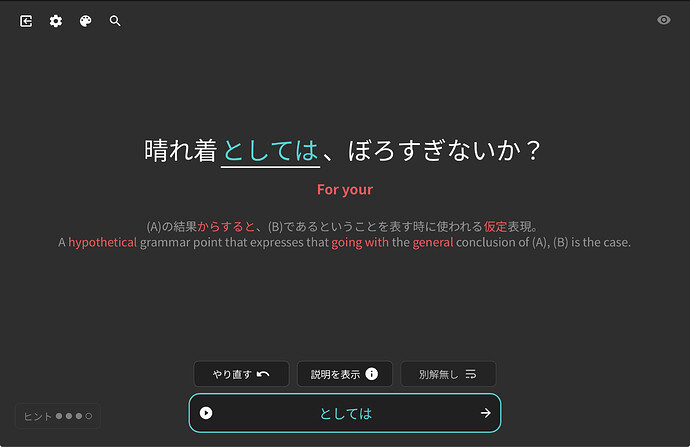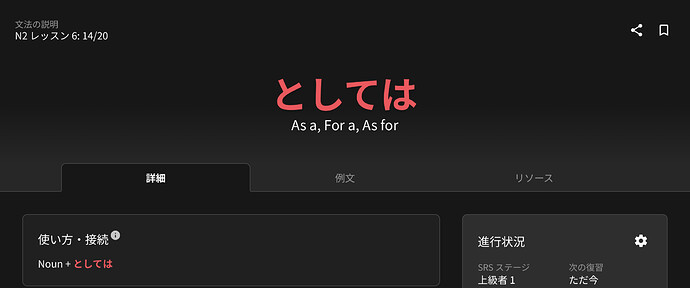Lately I’ve run across a bunch of translations on bunpro that I dont agree with. Not because theyre wrong, but because that specific meaning isnt necessary, as the japanese is more ambiguous.
For Example:
Thats not what that sentence means. “As for this, even if its not finished by tomorrow, its okay” is a lot more accurate I think. It could also mean “This specifically, even if not finished by tomorrow, is okay” if I am not misstaken. However, both of these obviously sound really weird in english, which is probably why the team went their translation. Given appropriate context (which bunpro doesnt and cant have for every sentence) the translation offered by bunpro may also be the only correct one. (Theres also a real possibility I am just missing something here, but I think in general my point stands.)
Since I dont really like anime and rarely find japanese TV Shows that I enjoy, I watch a good amount of VTuber clips on youtube, often times with english subtitles. And they do the exact same thing, and translate a sentence like “kawaii” to “Oh you sounded so cute just now”. However, i feel like fan translations and bunpro are trying to achieve different things: One is trying to make a piece of media as enjoyable as possible by translating it into another language, the other is trying to teach a foreign language by providing translations. I cant help but wonder if the bunpro way of “translating context into the sentence” isnt ultimately counterproductive as it tries to make english sentences out of japanese sentences, when sometimes thats just not really possible.
I dont consider this to be a huge issue by the way, I am just curious what the teams thoughts are on translations and allowing ambiguity in english. Have you considered having more jarring, literal translations and decided against it for the sake of readability or do you just go with context based translations, because thats what the real world is like?
Also this post reads like the ramblings from a madman but I am too tired to rewrite it in a better and more structured way. I am sorry, but thank you for reading anyways  Also If anyone has an idea for a better title, feel free to suggest it
Also If anyone has an idea for a better title, feel free to suggest it 


 .
.

 .
. )
)